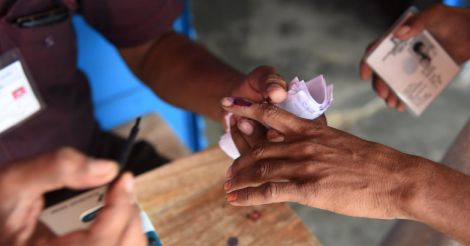There are some subjects that trigger debates at the national level at regular intervals only to die down eventually. I have lost count of how many times we have discussed the idea of holding elections to Parliament and state legislatures simultaneously.
It became a hot topic of discussion once again recently after the president and the prime minister made a case for holding the polls together. Both the leaders supported the idea of one election once in five years (the Jammu and Kashmir assembly has a six-year term) and maintained that it would be highly beneficial and desirable in the larger national interest.
With both the head of the state and head of the executive branch of the government pitching for concurrent polls to states and Parliament, the Election Commission (EC) has decided to evolve a consensus on the matter among political parties.
However, apart from the Bharatiya Janata Party (BJP), all other major political parties are averse to the idea. Among the first leaders to oppose the proposal was CPI general secretary S. Sudhakar Reddy. He opined that early dissolution of constitutionally elected Assemblies was impractical and such a move was designed to derive political mileage and satisfy the BJP’s lust for power.
Certainly the proposal is far from new. Political parties had explored the scope for holding simultaneous Lok Sabha and assembly polls for the first time in 1969, after a number of coalition governments that captured power unseating the Congress party failed to complete their terms in some of the northern states.
Indira Gandhi’s astute move to go in for early elections in March 1971, one full year before the fourth Lok Sabha could finish its term, however, broke the link between elections to national and State legislatures.
In 1977, 1989, 1996, and 1998, the election results led to a coalition system wherein no single party achieved a majority in Parliament to form a government.
As a result, the governments that came to power at the center after those elections were dissolved prematurely. During the period under review, the country had seven prime ministers and six of them ruled with “outside support”.
P. V. Narasimha Rao (1991–96) and Manmohan Singh (second UPA government, 2009-14) were the only prime ministers, who managed to lead a minority government for a full term.
Among the presidents, Neelam Sanjiva Reddy, R. Venkataraman, and APJ Abdul Kalam, who were convinced of the effectiveness of the proposal, strongly batted for conducting elections together.
Among prime ministers, Atal Bihari Vajpayee was the one who earnestly endorsed the idea of clubbing the Lok Sabha and assembly elections. He even went a step further by recommending the subject to the Administrative Reforms Commission for perusal.
I. K. Gujral, during his year-long tenure, had put forth a demand to allow a central or state government to continue in office in the event of it losing its majority and no other party being able to mop up the numbers.
Leaders like Sanjiva Reddy, Venkataraman, Abdul Kalam, Vajpayee and former vice-president Bhairon Singh Shekhawat were of the opinion that simultaneous elections would lighten the financial and administrative strain on the government and the Election Commission machinery. Same views have been aired by the president and the prime minister now.
Former presidents Zail Singh, K. R. Narayanan and almost all the Congress prime ministers, on the other hand, strongly opposed the proposal. They felt such an electoral exercise would have an adverse impact on the Indian federal union’s diversity.
According to them, as political parties would highlight different issues as campaign planks at national and state levels, the voters might prefer to focus on national issues while electing their member of parliament and they might go for the personal charisma and goodwill of the assembly candidate.
If the electorate chose to exercise their franchise in such a way, it would make life difficult even for national parties, they argued.
Most of the prominent regional parties, excluding the Biju Janata Dal and the Telugu Desam Party, want the Lok Sabha and the assembly elections to be held separately.
Interestingly, many of the chief ministers in the BJP-ruled States, where there is no scope for simultaneous elections, have been maintaining a studied silence on the statements made by the prime minister.

























 Representative image
Representative image